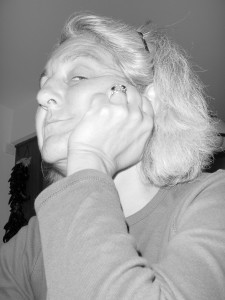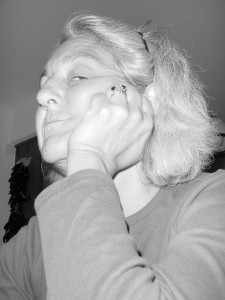When Being Trustworthy Isn’t Enough to be Trusted
In sales, you sometimes hear, “They were pursuing an aggressive strategy – aggressively waiting for the phone to ring.” In other words, sometimes you’ve got to take action.
Much the same is true of trust. If you want to be trusted, sometimes it’s not enough just to be trustworthy. Sometimes you’ve got to take action. But how?
Most of my work over the past 15 years has been on trustworthiness. In The Trusted Advisor and my other books, I’ve put a lot of emphasis on the Trust Equation – more properly, the “Trustworthiness Equation.” The implied (and often explicit) message is, “To be trusted, be trustworthy.”
But what about when that’s not enough? How do you take action?
To understand what action to take, I need to differentiate between trust, trusting, and being trusted.
Trust, Trusting, and Being Trusted
In all the writing and research I see done in the field of trust, rarely do I see this critical but simple distinction being made. It seems quite obvious, when you think about it. One party trusts, the other party is trusted, and the result is trust. Simple.
And yet – most trust talk obscures the differences. See if you can guess which one is being talked about in these examples:
- Trust in banking is down
- Banks rank low on the trust scale
- People don’t automatically trust their bank anymore.
I’d suggest that probably they mean the following:
1. “Trust in banking is down” – is about trust (e.g. the level of trust that exists between banks and their clients is less than it used to be)
2. “Banks rank low on the trust scale” – is about being trusted (e.g. banks are viewed as less trustworthy than football clubs or hospitals)
3. “People don’t automatically trust their bank anymore” – is about trusting (e.g. these days people are less inclined to trust everything, including, for example, their bank).
But since they all sound pretty much alike, unless you can read the mind of the writer, you can’t be sure. And here’s why that’s important.
The Reciprocal Relationship between Trusting and Being Trusted
The creation of trust between two parties depends on a reciprocating exchange. It begins when party A takes a small risk to trust party B – A is the trustor, the one doing the trusting. Party B is the trustee, the one who is trusted. And if party B agrees to the new relationship, the result is a higher level of trust.
Take something as simple as a handshake at a networking event. Party A goes over to party B and says, “Hi Mark, I’m Charlie – I think your work on the boson participles was great, and I just wanted to meet you (extends hand).”
If party B reciprocates (e.g. “Hi Charlie, delighted to meet you, I’ve heard about you as well, how are things? (shakes hand),” then the result is trust.
If party B does not reciprocate (e.g. B looks at A’s hand, does not extend his own, gives a tight-lipped smile and turns away), then trust is not created.
The key to trust creation is reciprocity – the trustor takes a risk, and if the trustee reciprocates, trust is created. If not, trust is not created.
Therefore: the absence of trust can be caused by:
a. too little trustworthiness on the part of the trustee, or
b. too much risk aversion on the part of the trustor.
Now here’s the key: if you want to be trusted, you have two strategies you can pursue.
- Increase your level of perceived trustworthiness (think trust equation), or
- Kick-start the reciprocity relationship by first playing the role of trustor.
You’ve heard the second strategy before. Henry Stimson often gets credit for first saying, “The best way to make a man trustworthy is to trust him.” The same is true of making yourself more trusted – demonstrate vulnerability by offering to trust first. The natural human reciprocal response is to return the gesture – tit for tat, good for good, bad for bad.
How often have we heard: You get out what you put in, the love you take is equal to the love you make, one good turn deserves another, whether you expect good or ill, that’s what you’ll get. They’re simple statements, but not simplistic – they’re profound.
In game theory, the simple “tit for tat” strategy is shown to beat all others. (You’ll love the link – Richard Dawkins in video with circa 1990 computers).
Using Reciprocity – Rightly
Reciprocity is deeply wired into our psyches. You can trust it. You can use it. You can depend on it working – if, that is, you don’t abuse it.
Want your customers to trust you? Find some ways to trust them.
Want your colleagues to trust you? Find some ways to trust them.
Want your direct reports, and your report-to’s to trust you? Find some ways to trust them.
Trusting + Trusted = Trust
Trust it. It’ll work for you too.


 Differentiation. It’s one of the
Differentiation. It’s one of the  Trust in the Media is Down
Trust in the Media is Down